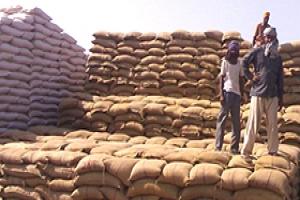- चंडीगढ़ संघ राज्य क्षेत्र
- रचनात्मक क्रियास्थल
- दादरा नगर हवेली केन्द्रीय शासित प्रदेश
- दमन और दीव केन्द्रीय शासित प्रदेश
- प्रशासनिक सुधार और लोक शिकायत विभाग
- जैव प्रौद्योगिकी विभाग
- व्यापार महकमा
- उपभोक्ता मामले विभाग
- औद्योगिक नीति और संवर्धन विभाग
- डाक विभाग
- विज्ञान और प्रौद्योगिकी विभाग
- दूरसंचार विभाग
- डिजिटल भारत
- आर्थिक मामले
- एक भारत श्रेष्ठ भारत
- ऊर्जा संरक्षण
- व्यय प्रबंधन आयोग
- खाद्य सुरक्षा
- गांधी@150
- बालिका शिक्षा
- सरकारी विज्ञापन
- हरित भारत
- अतुल्य भारत!
- इंडिया टेक्सटाइल
- भारतीय रेल
- Indian Space Research Organisation - ISRO
- रोज़गार निर्माण
- LiFE- 21 दिन का चैलेंज
- मन की बात
- मैला ढ़ोने की प्रथा से मुक्त भारत
- पूर्वोत्तर क्षेत्र विकास मंत्रालय
- कृषि और किसान कल्याण मंत्रालय
- रसायन और उर्वरक मंत्रालय
- नागरिक उड्डयन मंत्रालय
- कोयला मंत्रालय
- कारपोरेट कार्य मंत्रालय
- संस्कृति मंत्रालय
- रक्षा मंत्रालय
- पृथ्वी विज्ञान मंत्रालय
- शिक्षा मंत्रालय
- Ministry of Electronics and Information Technology
- पर्यावरण, वन और जलवायु परिवर्तन मंत्रालय
- विदेश मंत्रालय
- वित्त मत्रांलय
- स्वास्थ्य और परिवार कल्याण मंत्रालय
- गृह मंत्रालय
- आवास और शहरी मामलों के मंत्रालय
- सूचना और प्रसारण मंत्रालय
- जल शक्ति मंत्रालय
- कानून और न्याय मंत्रालय
- सूक्ष्म, लघु और मध्यम उद्यम मंत्रालय (MSME)
- पेट्रोलियम और प्राकृतिक गैस मंत्रालय
- ऊर्जा मंत्रालय
- सामाजिक न्याय और अधिकारिता मंत्रालय
- सांख्यिकी एवं कार्यक्रम क्रियान्वयन मंत्रालय
- इस्पात मंत्रालय
- महिला एवं बाल विकास मंत्रालय
- माईगव मूव - वॉलंटियर
- नई शिक्षा नीति
- न्यू इंडिया चैंपियनशिप
- नीति आयोग
- भारत के विकास के लिए एनआरआई
- ओपन फोरम
- PM Live Events
- राजस्व और जीएसटी
- ग्रामीण विकास
- सांसद आदर्श ग्राम योजना
- सक्रिय पंचायत
- कौशल विकास
- स्मार्ट सिटी
- भारत में खेलकूद
- स्वच्छ भारत
- जनजातीय विकास
- जलागम प्रबंधन
- राष्ट्र निर्माण में युवाओं की भागीदारी
भारतीय खाद्य निगम के पुनर्नवीकरण के लिए आम जनता एवं हितधारकों के सुझाव आमंत्रित है

आरंभ करने की तिथि :
Jan 01, 2015
अंतिम तिथि :
Sep 30, 2014
04:15 AM IST (GMT +5.30 Hrs)
भारत सरकार ने भारतीय खाद्य निगम की परिचालन क्षमता और वित्तीय ...


The Govt officers who directly involve with farmers (buying the food grains, etc), must undergo another year of special kind of test for their job eligibility, in which he/she has to work on the ground with a farmer family and sow and yields minimum two crops.
Thus the officers understand the pain points of the farmers.
After all the Presidents of America had to serve army, this wont be a big challenge.
Open ended purchase by Govt distorts the crop pattern. So we have surplus grain that gets rotten in storage, and many other items are to be imported. Govt should buy only to maintain buffer stock. This quantity should be announced before the sowing starts. This will enable farmers to consider alternate cash crops. This will protect the soil and will make the country self dependent in agri products. Rotting grains is a sin that will vanish if this is implemented. This will also eliminate MSP need
Providing grains on subsidised rate leads in increasing handling of food grains even high income group people can get these grains from the distribution system. Sending Subsidised amount to the bank will lead in disclosing their income.
Just think what a private company will do.
They will improve supply chain and storage facilities which is very bad in our country.
It is very simple. There are so many railway coaches and vehicles like truck and buses which are scrapped in sheds and godwons. Just distribute them to village panhchayats. Let the FMCG or fertilizer companies who want to sell or buy the village produce will paint them. Also do try place them cover the water resource of the village so that it should not get dried up in summers. EASY STEPS :)
People's rather farmers' participation may be the key to solving the problem of grain storage. An on-line database (through registration of farmers storing the grains), may further help in minimizing the transportation and other costs for channelizing grains into PDS. Farmers may be offered a premium over MSP for storing the grains beyond harvest season in proportion to the duration of storage.
FCI should procured all the food grains it can store from the market directly, not through state agencies as it causes many ill practices against the interest of the consumer. Previous years food grains if not used should be sold to the public at the lower price if they are still eatable otherwise treated as waste or exported to the foreign countries and some times even free of cost like Somalia etc. Food grains available to through PDS should always be fresh and free of insects.
There is no need to procure food grains beyond storage capacity of FCI. Rather, storage of grains by the farm households themselves should be encouraged. The policy should ensure incremental price offers (over MSP) as incentive to the farmers for storing grains beyond harvesting season. This may obviate the need to create excess storage capacity, handling/ wastage of grains etc. Moreover, an online database of such farmers, the transport/other cost for channelizing grain in PDS may be minimized.
please plan silo storages across the country to minimize the grain losses and also bring transperency into the existing opaque system.
the challenge is to prevent leakage in PDS and improving in the storage of ration in FCI go-downs. Multi story go-downs should be explored as the luggage lifts can be used to access the grains on the higher floors. If even ground + 1 structure is created it would double the capacity of FCI go-downs. The diversion of the grains from PDS can be checked by introducing barcodes on rations cards to be scanned while distributing the grains. This would prevent dummy receipts generation.